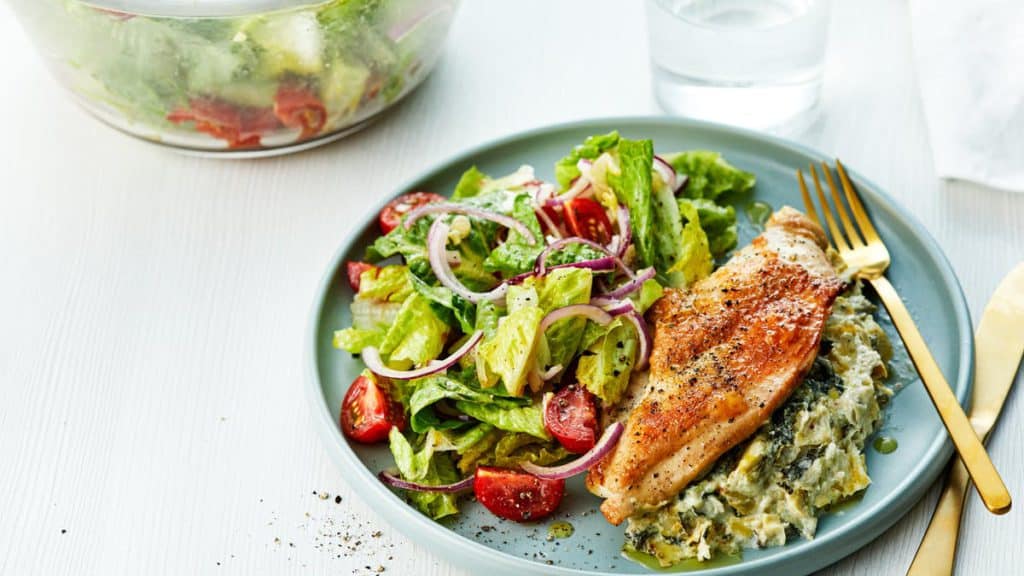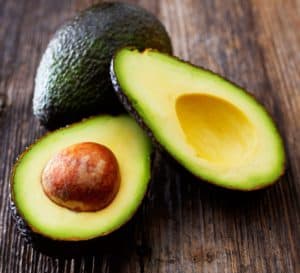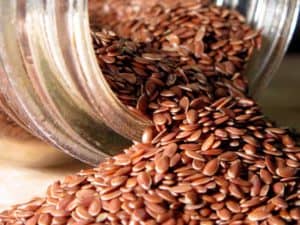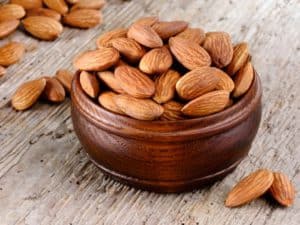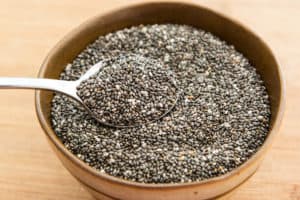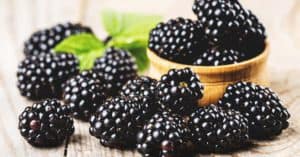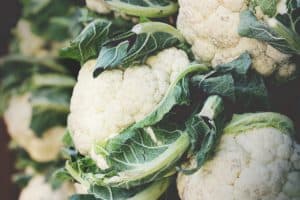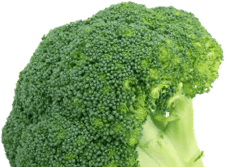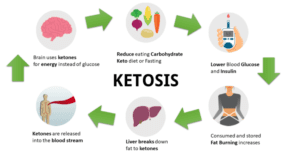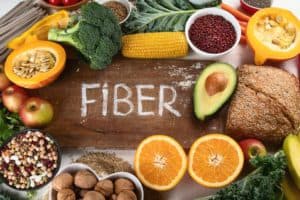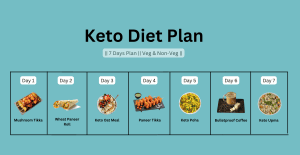Is there something that your keto diet frequently lacks? Well, that’s a small amount of roughage. The well-known diet, which normally calls for consuming 20 to 30 grams (g) of carbs per day and up to 70 percent of your calories as fat, is sometimes criticized for its deficiency in fiber.
For healthy digestion, fiber is essential. It keeps you regular by softening and boosting the volume of your feces because it is not digested by your body. Beyond helping with bowel motions, it also supports proper digestion and food absorption by feeding the friendly bacteria in your GI tract.
The majority of your immune system resides in your digestive tract, which is also home to your body’s second brain. Ensuring you receive enough fiber to maintain a healthy gut should be one of your top considerations if you’re following the ketogenic diet. It’s crucial to eat enough because high-fat diets slow digestion and reduce GI motility.
So if you adopt a keto diet, try and avoid consuming carbs at all costs. Whilst doing this, it is not usual for people to unintentionally reduce their fiber intake. Therefore, it is safe to say a badly planned keto diet can lead to a fiber deficiency. This may result in issues such as constipation, digestion-related issues as well as a lack of certain micronutrients. Here’s something you should know about fiber, high-fiber keto foods, and their benefits!
The National Institutes of Health (NIH) advises getting 25 to 31 g of fiber a day, depending on age and gender. Following a keto diet, and food list doesn’t mean it’s impossible to get what you need, but you have to remain diligent and determined to make it happen.
What Exactly Is Fiber And What Role Does It Play?
Dietary fiber, also known as roughage or bulk, is a type of carbohydrate that the body cannot digest. It is found in plant-based foods, such as fruits, vegetables, whole grains, legumes, and nuts.
There are two types of fiber: soluble and insoluble. Soluble fiber dissolves in water and forms a gel-like substance in the digestive tract, which can help lower cholesterol levels and blood sugar. Insoluble fiber, on the other hand, does not dissolve in water and adds bulk to the stool, helping to prevent constipation and promoting regular bowel movements.
Fiber plays a number of important roles in the body, including:
- Helps maintain bowel regularity: By adding bulk to the stool, fiber helps to prevent constipation and promote regular bowel movements.
- May help lower cholesterol levels: Soluble fiber can help lower cholesterol levels by binding to cholesterol in the digestive tract and removing it from the body.
- May help regulate blood sugar levels: Soluble fiber can help slow down the absorption of sugar in the bloodstream, which may help regulate blood sugar levels.
- May aid in weight management: High-fiber foods tend to be more filling, which can help with weight management by helping you feel full and satisfied.
- May reduce the risk of certain diseases: Some studies have suggested that a diet high in fiber may be associated with a reduced risk of certain diseases, such as heart disease, type 2 diabetes, and certain types of cancer.
It is important to include a variety of high-fiber foods in your diet to ensure you are getting a balance of both soluble and insoluble fiber. The recommended daily intake of fiber is 25 grams for women and 38 grams for men.
High Fiber Keto foods Include:
Avocado
Avocado is a high-fiber keto food to snack on. It\’s very easy for one to confuse an avocado be a vegetable. It is after all used extensively in a variety of savory dishes. However, Avocados are actually a fruit with a mild flavor that is neither really sweet nor really sour. With a medium-sized avocado having a net carb content of less than 4g, these buttery textured fruits are extremely keto-friendly. Not only do they contain healthy monounsaturated fats, folate, potassium, and vitamins K & C, but they also contain a fiber content of a whopping 13.5g
Flaxseed
These small oil seeds are a nutritional powerhouse. Packed with Omega-3 fatty acids and antioxidants. Their omega-6 fats to omega-3 fats ratio are low, associating them with various health benefits. In order to effectively reap their nutritional benefits and subsequent health benefits, it is suggested that they be ground and consumed in powder form. A half tablespoon of flaxseed contains approximately 2g of fiber and 0g of net carbs. So go ahead and add these healthy oilseeds to your daily meals.
Almonds
It is one of those dry fruits that your mom absolutely loved forcing on you as a child. Well, now we know why! Amongst the most popular tree nuts in the world, almonds are full of healthy fats, protein, and antioxidants. They are also rich in micronutrients like vitamin E, manganese, and magnesium. Moreover, these fiber-rich nuts are also a good substitute for your regular processed snacks. A mere 28g of these healthy nuts contains 3.5g of fiber.
Chia Seeds
This unique seed becomes a gel when soaked in liquid. Although very tiny, their size is in no way a representation of their nutritional content. They’re one of the best sources of Omega-3 fatty acids. Along with this, they are also rich in fiber, protein, and several micronutrients. A very healthy and keto-friendly source of fiber, a mere 28g of chia seeds has a fiber content of 10g.
Berries
Berries like blackberries and raspberries are extremely tasty. But that’s not all, these yummy berries are also very nutritious and unlike most fruits that have a high carb content, these berries are keto-friendly. They also have a very low net carb composition. Blackberries are very rich in vitamin C. 140g of blackberries provides approximately 30% of your daily requirement for this micronutrient. A 100g of blackberries also contains about 5g of fiber. Raspberries taste exactly as amazing as they look. This sweet but tart summer fruit is low in calories and is rich in vitamin C and manganese. 1 cup of raspberries (140g) provides your body with around 50% of its daily requirement of vitamin C and 41% of its daily requirement of manganese. A 100g of raspberries also contains about 6g of fiber. A 100g of both raspberries and blackberries have a net carb content of merely 5g.
Cauliflower
Cauliflower is a vegetable of great significance in a low-carb diet and is extremely keto-friendly. In many keto-friendly dishes, cauliflower works as a substitute for white rice in order to drastically lower the carbohydrate composition of the meal. It is extremely versatile. You can use it as a substitute for pizza crust, and mashed potatoes, and is also widely used in soups. It is a great source of choline which plays an important role in improving brain and liver health and also helps to improve metabolism and DNA synthesis. A cup serving of this cruciferous vegetable has a minute net carb content of 3g and a fiber content of 2g.
Broccoli
Yet another cruciferous vegetable that has a low net carb content. This vegetable is extremely nutritious and low in calories. It has a higher protein content than any other vegetable and is extremely rich in micronutrients like folate, potassium, and vitamins K & C. Broccoli is also rich in fiber. A 150g of chopped broccoli contains 5g of fiber and net carb content of 6g. While you can enjoy it raw or cooked, you can steam it to gain all the benefits that broccoli offers.
Takeaway
There is often an unintentional significant negative effect on an individual’s fiber intake when they try and adopt a low-carb diet. Keto being a low-carb diet also poses this risk.
Be sure to take note of these high-fiber keto foods that provide you with the desired intake of roughage and make sure that your body does not suffer health issues caused by the deficiency of this very important compound. Their high fiber content and low net carb composition also make them extremely keto-friendly.
Get yourself started today and Stay tuned for more such keto weight loss journeys, health content, and recipes! Also, don\’t forget to follow us on Instagram for the daily dose of the Keto Lifestyle!

